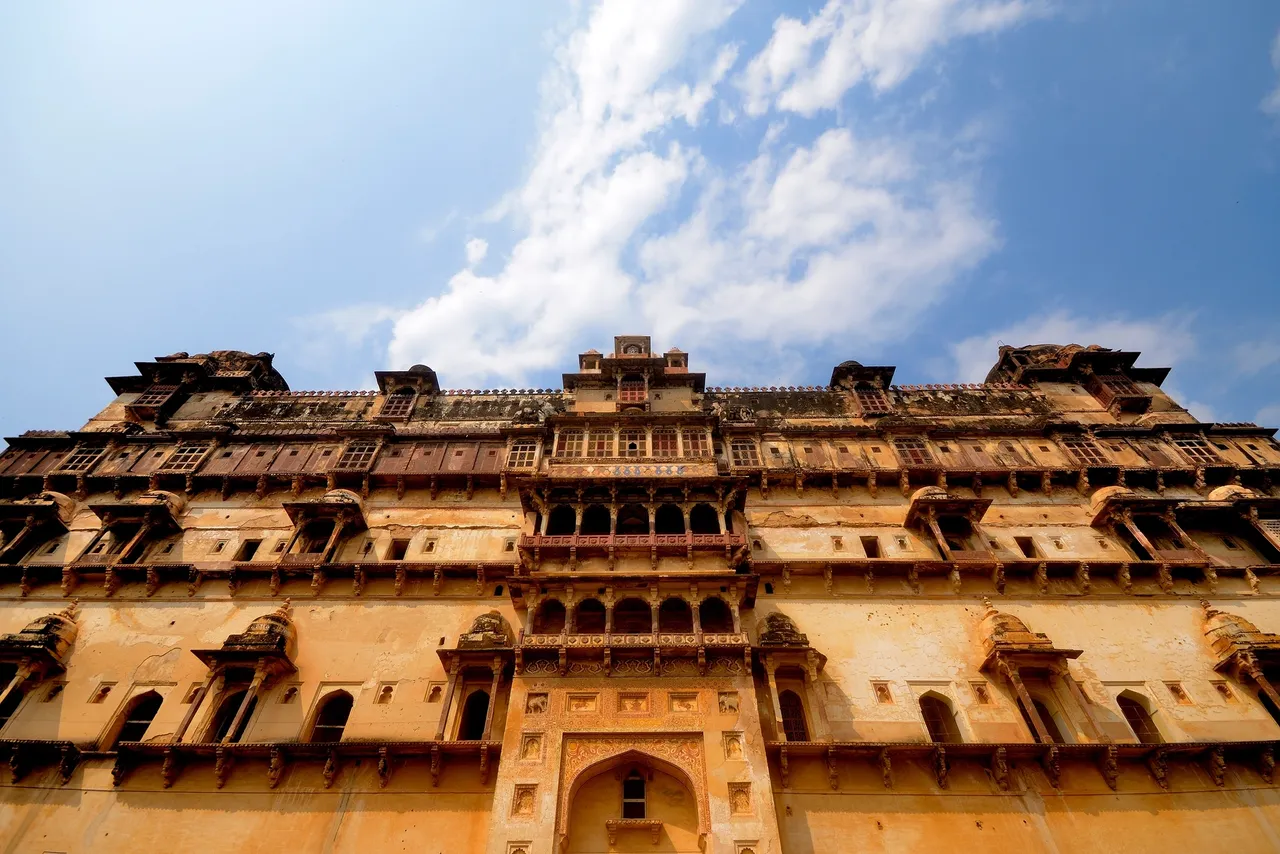Nestled in the heart of Madhya Pradesh, the medieval Datia Palace rises majestically above the tranquil landscape, casting its imposing presence over the serene surroundings. For over four centuries, this magnificent structure has stood resilient against the passage of time, its grandeur echoing through the quiet town of Datia. Yet, amidst the solitude that has enveloped it since its inception, there exists a singular night that holds a tale as intriguing as it is mysterious.
Such is the captivating story of the Datia Palace.

Before the Sindhias rose to power in Gwalior and other parts of Madhya Pradesh, the region was firmly under the control of the mighty Mughal Empire. However, even during the empire’s zenith, cracks began to surface within the royal family. Emperor Akbar found himself embroiled in a conflict with his eldest son and heir, Crown Prince Salim.
In a pivotal turn of events, Salim rebelled against his father’s authority and established his court in what is now known as Allahabad. Concerned about the escalating discord, Akbar dispatched his trusted prime minister, Abul Fazl, to persuade Salim to return to Delhi.
However, Abul Fazl, who harbored opposition toward Salim’s claim to the throne, saw an opportunity to remove the young prince from the equation during this diplomatic mission. Sensing the impending danger, Salim made preparations to counter any threats. It was during this tense period that Bir Singh Deo, a relatively obscure landlord in the political landscape, approached Salim with a proposal to eliminate the empire’s vizier.
Though Bir Singh Deo lacked prominence in regional politics, he shared Salim’s grievances against Emperor Akbar and had previously led rebellions against his rule. This unexpected alliance would set the stage for a clandestine operation with far-reaching consequences.


Refusing to pay taxes or engaging in minor acts of rebellion against the emperor might be one thing, but orchestrating the assassination of his vizier is a far more serious matter. The motivations driving Bir Singh Deo’s bold actions remain shrouded in mystery, yet one version of the tale suggests a reversal of roles: it was Crown Prince Salim who sought out Bir Singh Deo’s assistance, rather than the other way around. If this version holds true, Bir Singh Deo faced a difficult dilemma: either support the empire and risk alienating the future emperor, or aid a rebellious prince and incur the wrath of the most powerful figure in the land.
Nevertheless, Bir Singh Deo forged ahead with the audacious mission, successfully cornering Abul Fazal and carrying out the assassination. In a show of loyalty to Salim, Bir Singh Deo presented the severed head of the once influential Mughal courtier to the crown prince.
Despite the prince’s gratitude and even an offer of friendship, Bir Singh Deo found himself squarely in Emperor Akbar’s crosshairs following Abul Fazal’s assassination. Branded a fugitive, he became a prime target for the empire’s retribution.
Infuriated by the loss of his trusted advisor, Akbar spared no effort in seeking vengeance. Yet, despite the imminent danger, Salim, shielded by his status as crown prince, continued to provide Bir Singh Deo with vital information, aiding his evasion of the relentless pursuit.
For years to come, Bir Singh Deo lived on the edge, narrowly escaping repeated attempts on his life through sheer luck and the steadfast support of his unlikely ally.


Just as Bir Singh Deo teetered on the brink of being branded an outlaw indefinitely, a pivotal shift unfolded with the passing of Emperor Akbar. By this time, Crown Prince Salim had reconciled with his father, and upon Akbar’s demise, ascended the throne, assuming the regnal name Jahangir.
As the new emperor, Jahangir made the decision to cease the pursuit of Bir Singh Deo, recognizing the debt he owed to the man who had once saved his life and played a vital role in securing his position as the ruler of Orchha.


Years later, when Emperor Jahangir expressed his desire to reconnect with his old friend Bir Singh Deo, he embarked on a remarkable gesture of goodwill. Commissioning the construction of 52 buildings within the kingdom, the emperor sought to express his gratitude and strengthen the bonds of friendship. Among these structures was the palace in Datia, intended to serve as a resting place for Jahangir during his journey.
Known by various names, including Bir Singh Deo Palace and Satkhanda Palace, the Datia Palace was specifically erected for this purpose. However, as per the arrangement, Emperor Jahangir spent only one night at the palace before continuing his journey to Orchha. Given its status as a gift from the emperor, neither Bir Singh Deo nor his family ever made use of the palace for their personal needs. Consequently, the Datia Palace remained deserted and untouched for over four centuries, a silent witness to the passage of time and the enduring bonds of history.




